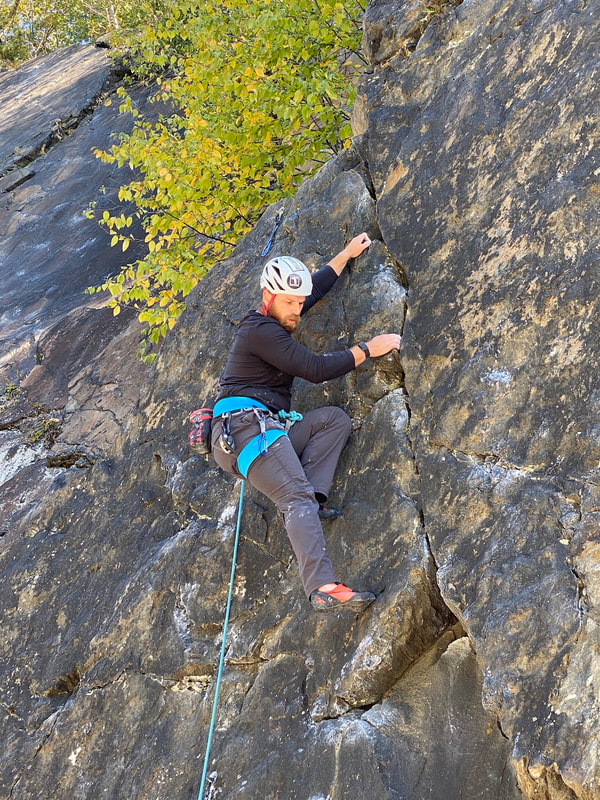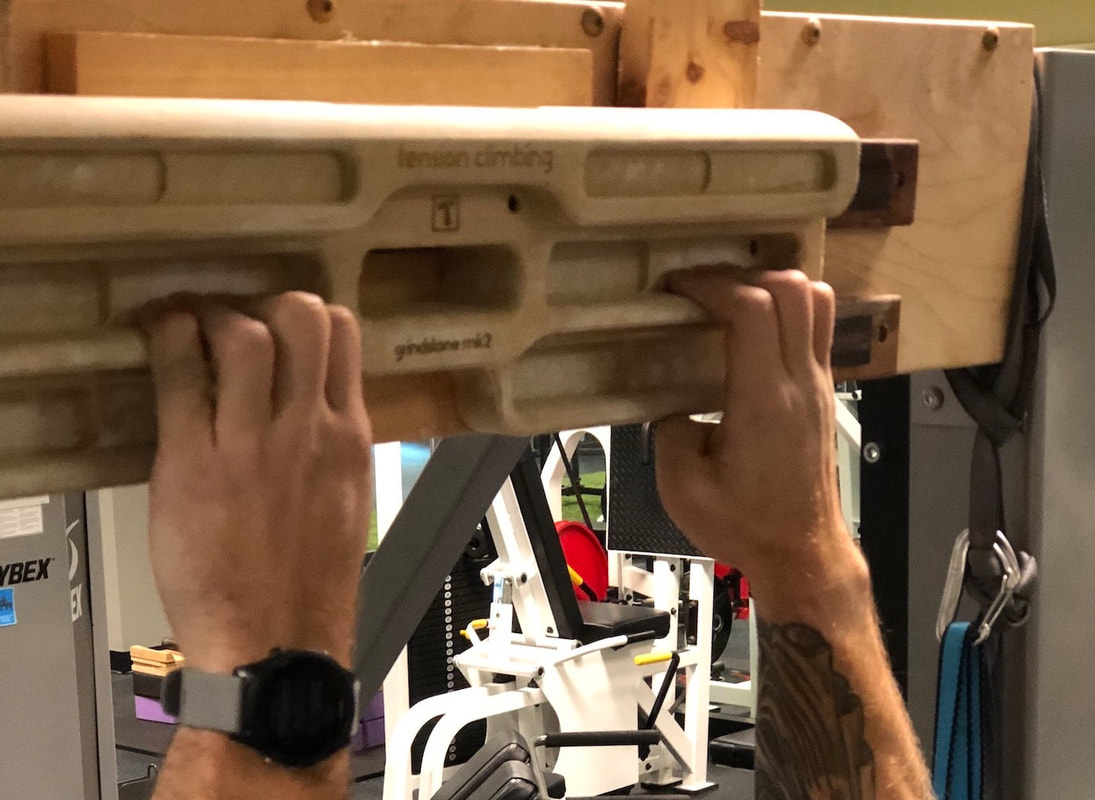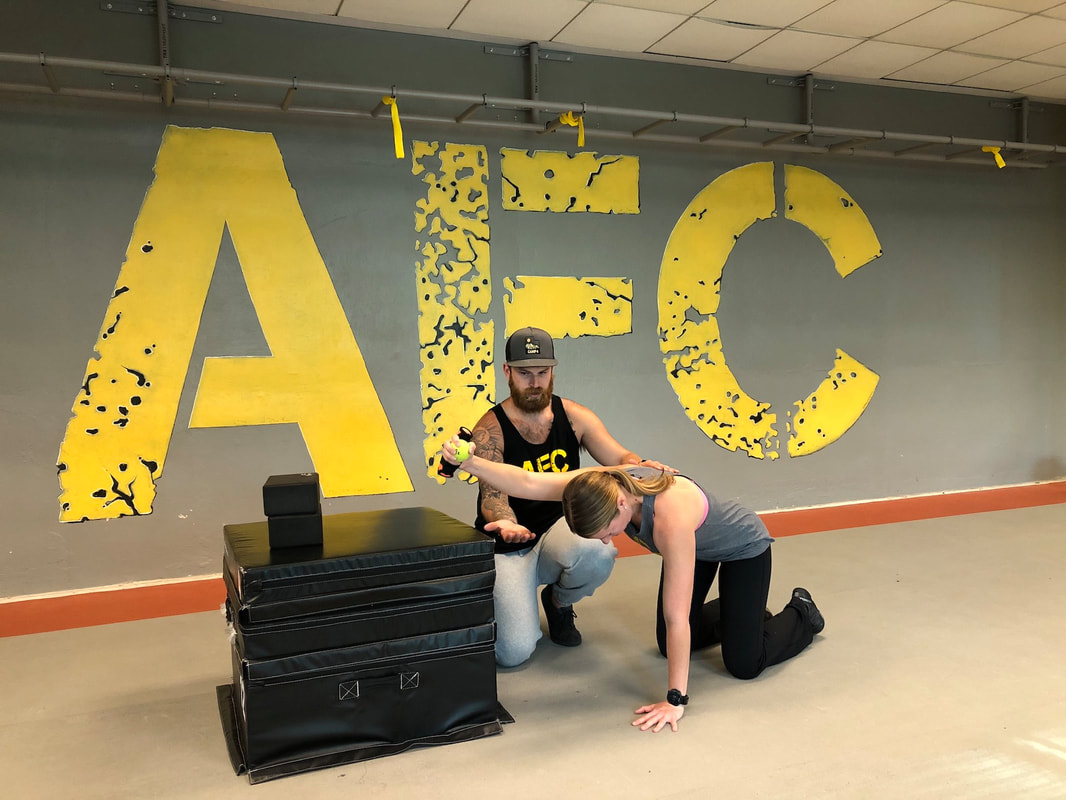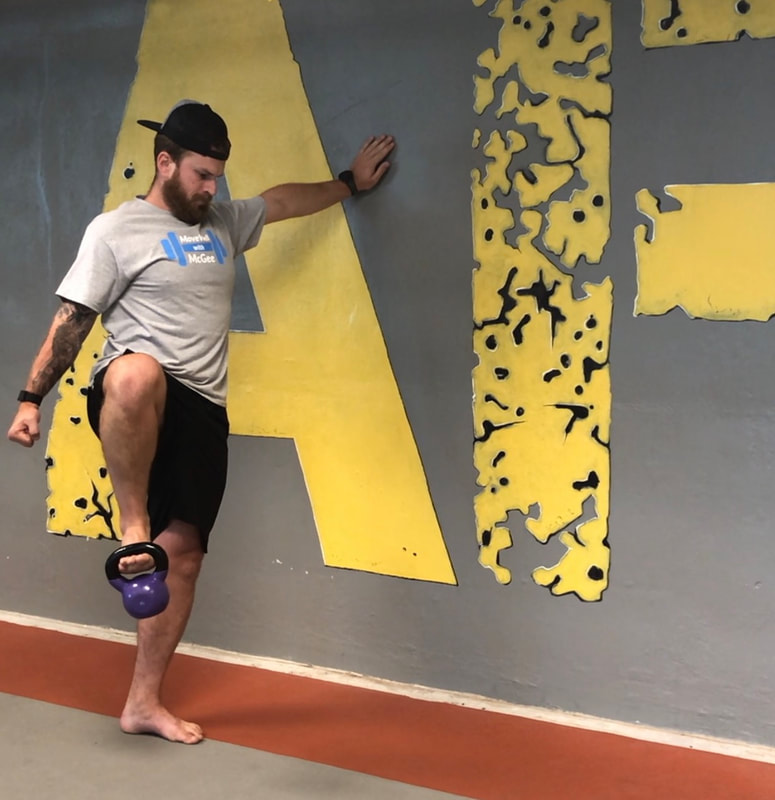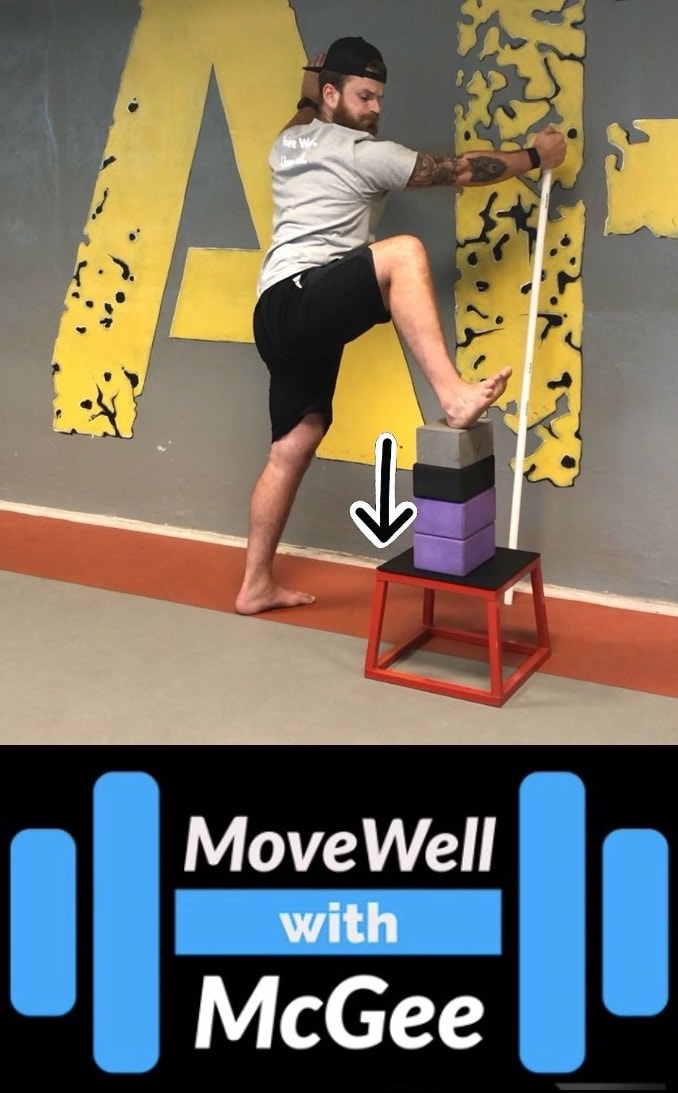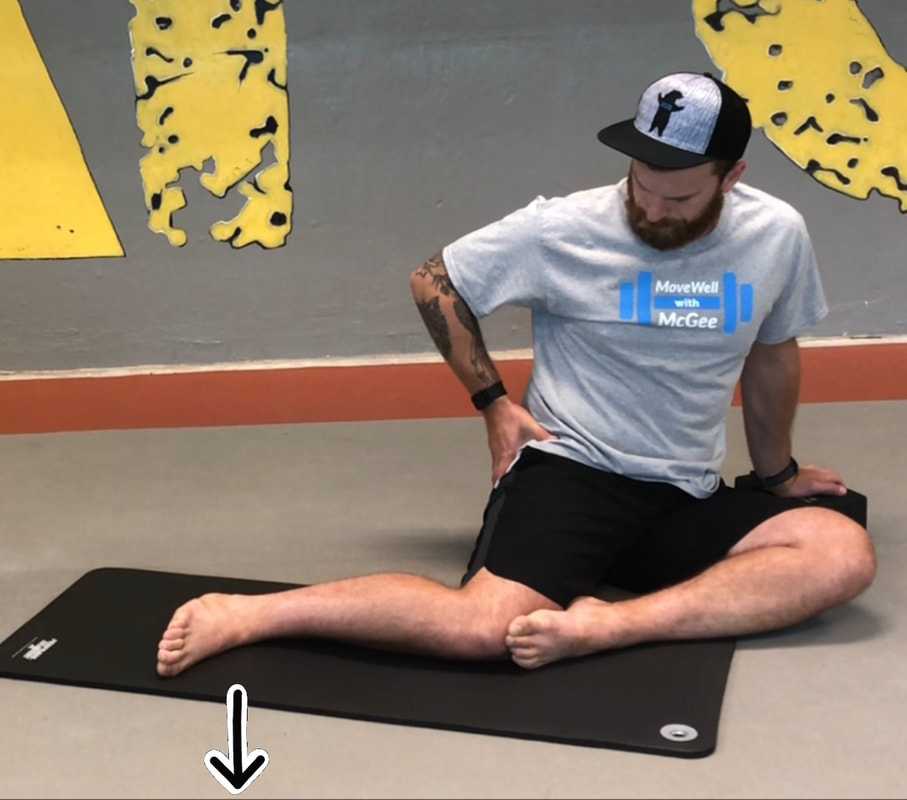This is an interview with small business-owner/personal climbing trainer Collin McGee of MoveWell with McGee. Collin has shared his awesome expertise with Common Climber readers through a couple of articles, one on Rock Climber Mobility and the other on Improving Hip Mobility and Strength, now we get to know a little bit more about Collin himself.
|
First tell us about yourself, how long have you been climbing and doing physical training?
I have been climbing for a little over 2 years going into this winter. It was love at first send after one of my co-workers brought me into the gym on a guest pass. I have been a personal trainer for almost 4 years now. I work with an array of individuals from young high school athletes covering many sports to 80+ years young individuals trying to live their best lives and play their best golf! You have some degrees and certifications related to physical training, can you tell us more about this? What do those degrees and certificates do for your clients? I graduated from Cornell University in 2016 studying nutrition and business. After graduation I dove down the rabbit hole of fitness because my athletic career playing baseball was plagued with many injuries. I had so much fun playing baseball. I made so many friends and memories and it helped me get into an ivy league school. Physical success allowed me to play so well… until I couldn’t. My goal is to be the coach I wish I had. Not that my coaches did anything intentionally wrong, but, I want to be the coach that is so ahead of the game with information, education, and training practices that I give those I work with the best chance at their movement freedom and injury mitigation. I want to be the coach that truly cares about each individual to go the extra mile. |
Degrees and certifications are great! They are important stepping stones in the educational and career development process. However, you are never “done.” Understanding how to improve physical performance and resiliency to injury is an ever-changing process with new scientific findings every year. I believe the hunger for continued learning shows people that you are equally as invested in their fitness journey as they are.
How is training for climbing different or the same as training for other sports?
We are all human beings. We all fall under the category “homo sapien” so with training will have crossover at points. However, the sport of climbing does have some key characteristics that separate it from other sports that need to be considered for effective training results. The obvious one is the use of the fingers. I cannot think of another sport that demands such strength and resiliency out of one’s fingertips! The fingers and hand in total are unique to training compared to other general movements in other sports because of their structures. They are primarily bones and tendon, with the muscles controlling them located further upstream in the forearm. The only other somewhat comparable limb is the foot with running based sports. Understanding these structural nuances is really important because there are different physiological and biomechanical considerations like the adaptability of bone/tendon vs. muscle and the unique fingers mechanics of a full crimp vs. a half crimp.
Are there different training considerations within the sport of climbing itself? Would you advise a boulderer about training differently versus someone who trad climbs?
It depends on how far along the spectrum the individual is specializing in the sport and their unique goals. Most climbers will have the same general strength training and mobility training as those are geared to fundamentally creating a resilient and mobile human. But, on one end of the spectrum, the boulderer exists who, on average, is climbing very short routes at high intensities, whereas the trad climber might be on the other end of the spectrum climbing very long routes, slowly and methodically. Generally speaking a boulderer will have to be much stronger and more powerful in less time than perhaps a trad climber who is making an ascent more slowly. Therefore the boulderer's strength training routine might be seen with more weighted fingerboarding in short work intervals (3-5s hangs) and more rapid hanging/campus boarding to match the demands of the boulders. A trad climber's training would reflect more endurance based training like longer interval hangs (7-10s) since the climbs are much taller and the climber must be able to hold a position long enough to correctly place pieces of protection. The specific and different demands of the climbing dictate the specific training they need.
With that said, you may run into longer boulder problems that require more endurance and 5.13+ trad climbers that require more contact strength for a deadpoint crux move. You might also run into climbs that require specific body positions that would dictate specific mobility training. Hence, assessment of the individual and what they do are the ultimate key to the success of their training program!
It depends on how far along the spectrum the individual is specializing in the sport and their unique goals. Most climbers will have the same general strength training and mobility training as those are geared to fundamentally creating a resilient and mobile human. But, on one end of the spectrum, the boulderer exists who, on average, is climbing very short routes at high intensities, whereas the trad climber might be on the other end of the spectrum climbing very long routes, slowly and methodically. Generally speaking a boulderer will have to be much stronger and more powerful in less time than perhaps a trad climber who is making an ascent more slowly. Therefore the boulderer's strength training routine might be seen with more weighted fingerboarding in short work intervals (3-5s hangs) and more rapid hanging/campus boarding to match the demands of the boulders. A trad climber's training would reflect more endurance based training like longer interval hangs (7-10s) since the climbs are much taller and the climber must be able to hold a position long enough to correctly place pieces of protection. The specific and different demands of the climbing dictate the specific training they need.
With that said, you may run into longer boulder problems that require more endurance and 5.13+ trad climbers that require more contact strength for a deadpoint crux move. You might also run into climbs that require specific body positions that would dictate specific mobility training. Hence, assessment of the individual and what they do are the ultimate key to the success of their training program!
You have recently begun a partnership with Camp4Human Performance tell us more about that.
When I first got into rock climbing I was thoroughly enamored with the physical demands of the sport. It spoke to strength, power, and advanced movement that I was studying through Functional Range Systems. This educational system teaches coaches and individuals how to create better “usable” range of motion so they can successfully do the physically the actively they love well and with less injury. I love to view the sport through that scientific lens and through Instagram I found Dr. Tyler Nelson who also saw the sport the same. Dr. Nelson was beginning to ask new questions and conduct new research that the sport never saw before. I was immediately hooked on his account and attended a local seminar in Philadelphia shortly after.
To make a long story short, I initially joined a group of coaches that began to implement the finger strength assessment and training that he developed. Fast forward a bit and the demand for Rock Climbing Mobility began to arise and Dr. Nelson asked me if I wanted to help cover that demographic of training. I was too psyched to help!
How does working virtually with a physical trainer compare to working in-person?
There is no doubt there is more value in training with a coach 1-on-1 in person. There is irreplaceable interaction, attention to detail, and coaching ability found in person that is nearly impossible to replicate virtually. However, that does not mean that coaches do not want to expand their ability to help more people or more people to have access to coaches, especially during COVID! This is where virtually training comes into play. It can be incredibly safe and effective when done well with a coach. The camera angles might not be perfect (as well as the internet connection…) and you might not be able to get hands on, but with an ever-changing world, it is still very useful and highly recommended - especially with how many people around the world are starting to appreciate quality training and coaching.
You have some online classes. What are those and how do they work?
I have created self-guided online classes to help those train that otherwise cannot find a coach or in-person gym or for those who want to supplement their current training program. The main concept is to introduce the concept of movement assessment prior to training. It is very important to understand that YOU are not the same as the person next to you. Along with different goals we all have different strength and movement limitations that will dictate how we approach training towards our goals. It is also important to understand the strength and movement requirements from our sport, rock climbing. We need to first understand where we are in relationship to those requirements for us to not only have an effective plan of action in the correct direction, but to also embark on the journey safely to avoid injury and setback.
You are then provided with Kinstretch mobility classes. These classes are designed to educate and train you how to create the usable range of motion that you need to live well and climb well. Some people may need more flexibility. Some may need more strength. The classes are designed to help you decipher those needs to prioritize your training. So, the experience is very different for everyone with the same goal in mind: to improve the way you move so that you may improve the way you feel and climb!
|
One of your specialties is mobility training (you have some great, helpful articles here in Common Climber - see intro above). How does mobility training relate to strength training? In climbing we are so strength oriented.
I really like to hammer home the relationship of “mobility” to “usable range of motion” because that helps clarify that mobility training NEEDS to be strength training oriented. Mobility training consists of creating range of motion to complete a movement task (for example, ability for foot to lift and be placed on a stair), the strength necessary to complete the movement task (pressing into the stair and going up continually) and not get hurt in the process (pull a calf muscle while ascending staircase) and having the full control over the movement (not off balance or stumbling while walking up the stairs). Mobility and rock climbing are like peanut butter and jelly in my eyes. There are few other sports that are as physically demanding with the amount of strength that one needs to ascend the stone successfully while also challenging the individual in uncommon body positions to maintain control and tension through. Strength training through the full range, and in the unique/end-ranges that are challenged, is how one creates that usable rock climbing range of motion that will support one’s goals to send harder and stay healthier while doing so. |
COVID has impacted many small business, especially in the climbing world, but with people moving their training into their homes or away from gyms, how has COVID impacted your business?
COVID was definitely the metaphorical curveball out of nowhere. I think it’s a humbling reminded about the power of nature and how quickly our lives can change. It also showed the importance for businesses to have multiple streams of income and services. If you weren’t online as a coach before COVID, you definitely are now. It significantly subtracted from my in-person coaching but also opened new doors I probably would not have put as much effort into otherwise. I created my online classes, a podcast, and met you and The Common Climber! A totally unfortunate global event but if there is a bright side, it is how it challenged me to adapt and grow.
COVID was definitely the metaphorical curveball out of nowhere. I think it’s a humbling reminded about the power of nature and how quickly our lives can change. It also showed the importance for businesses to have multiple streams of income and services. If you weren’t online as a coach before COVID, you definitely are now. It significantly subtracted from my in-person coaching but also opened new doors I probably would not have put as much effort into otherwise. I created my online classes, a podcast, and met you and The Common Climber! A totally unfortunate global event but if there is a bright side, it is how it challenged me to adapt and grow.
|
What’s it like being a small business owner? Any lessons learned?
My biggest focus as being a small business is the individual and community. “They don’t care how much you know until they know how much you care,” is a quote that I live by from Brett Bartholomew. It is very easy to get overwhelmed by big business and their ability to scale largely. But, they sacrifice true human connection that can only be achieved in small environments. For that, there will always be room for us at the dinner table. What is something you’d love for climbers to know that they might not know? Learn how to fall in love with the process and you probably need to do less… I think a process-oriented thought process over a results-based one will always yield more success. It is valuing and actively thinking about your efforts to train, sleep better, recover better, enjoy discovering new beta, assessing your abilities for more accurate training, etc. rather than worrying about the amount of 5.12+ ticks you had last year. Let the send come via the process. I view rock climbers like runners. We all are so psyched about what we do and the memories made, people we meet, places we go, etc. that we forget rock climbing is incredibly physically strenuous and needs adequate rest to continue to have a long career. We just want to try hard all the time and get our money's worth! It takes a very long time to improve abilities We can’t rush the ability to send V2 to V12. Thinking you can expedite the process by doing 4 sessions a day, 7 days a week, is a sure way to significantly slow the process down. It is cliché but less is more. Strategic “less” is more. |
What is something our readers would enjoy knowing about you?
That rock climbing has significantly changed my life for the better. I thought leaving baseball and my past athletic life would be a gaping hole that would take forever to close. I can barely remember that time anymore. With climbing I have made so many friends, opened so many new doors, and found thorough physical and mental challenge. I can’t believe it took this long for me to discover!
I am so thoroughly invested in educating and training those to move better and prevent injury because I know I want it for just as bad. I want to be this happy for as long as I was meant to via a healthy and able body that I know comes from proactive training. I know there are so many others out there like me, who have found this sport and this community to uplift their lives for the better. I am psyched to help as many people as possible!
That rock climbing has significantly changed my life for the better. I thought leaving baseball and my past athletic life would be a gaping hole that would take forever to close. I can barely remember that time anymore. With climbing I have made so many friends, opened so many new doors, and found thorough physical and mental challenge. I can’t believe it took this long for me to discover!
I am so thoroughly invested in educating and training those to move better and prevent injury because I know I want it for just as bad. I want to be this happy for as long as I was meant to via a healthy and able body that I know comes from proactive training. I know there are so many others out there like me, who have found this sport and this community to uplift their lives for the better. I am psyched to help as many people as possible!
CONTACT COLLIN MCGEE:
Website: https://movewellwithmcgee.teachable.com/
Instagram: @liftsmcgee
Facebook: https://www.facebook.com/c31mcgee/
Website: https://movewellwithmcgee.teachable.com/
Instagram: @liftsmcgee
Facebook: https://www.facebook.com/c31mcgee/

